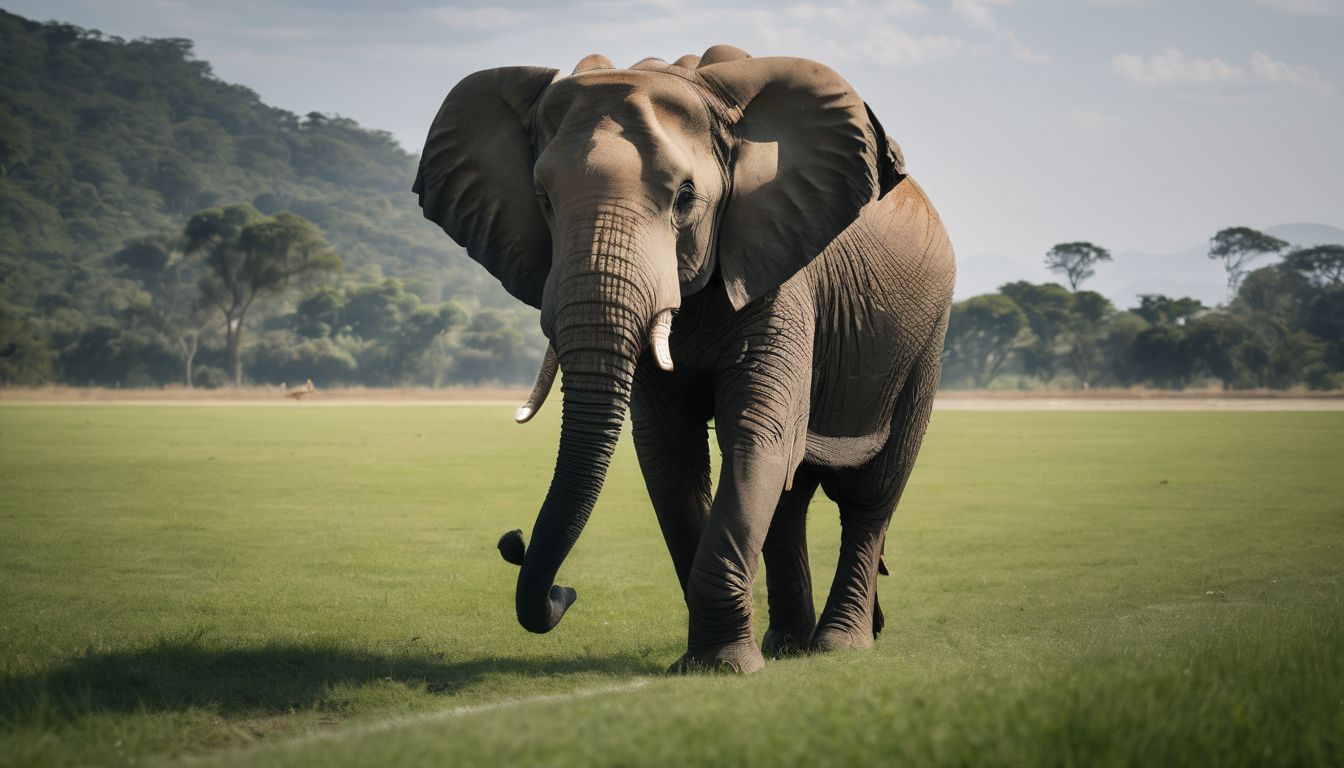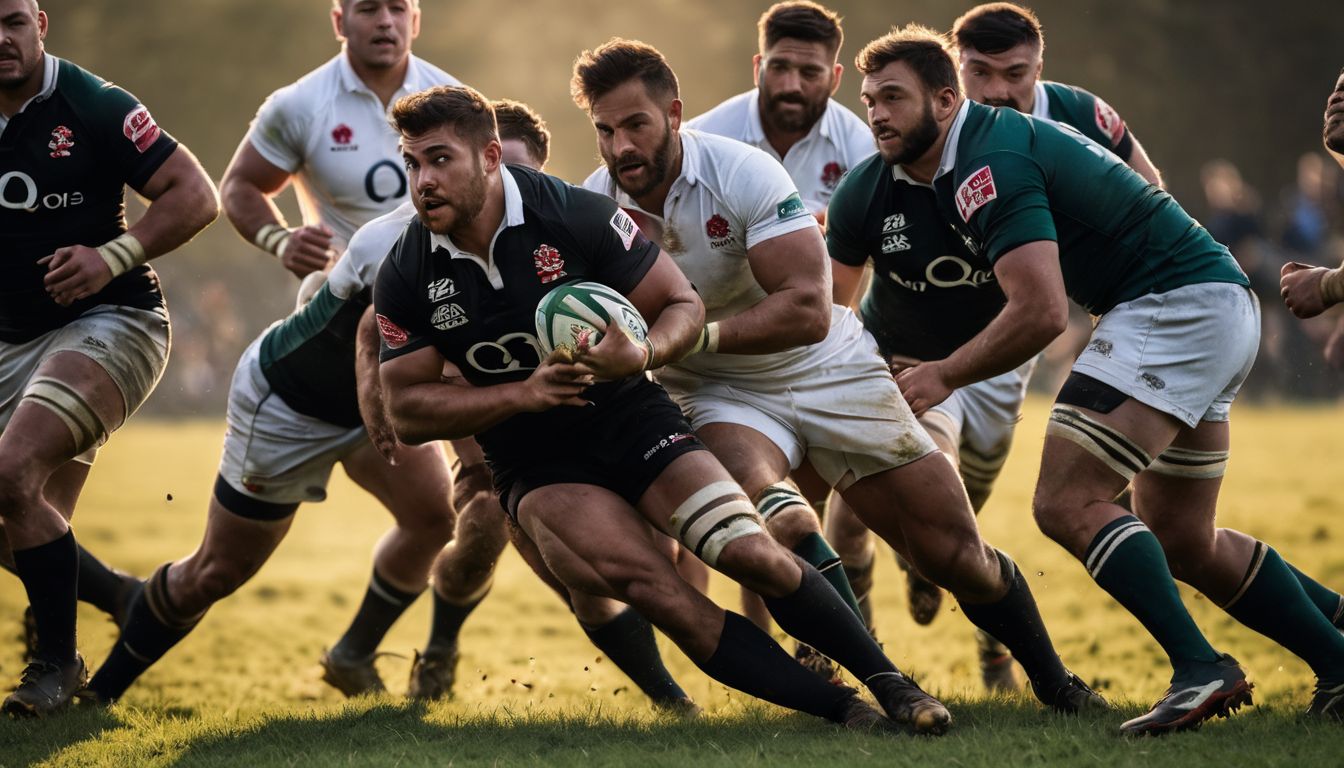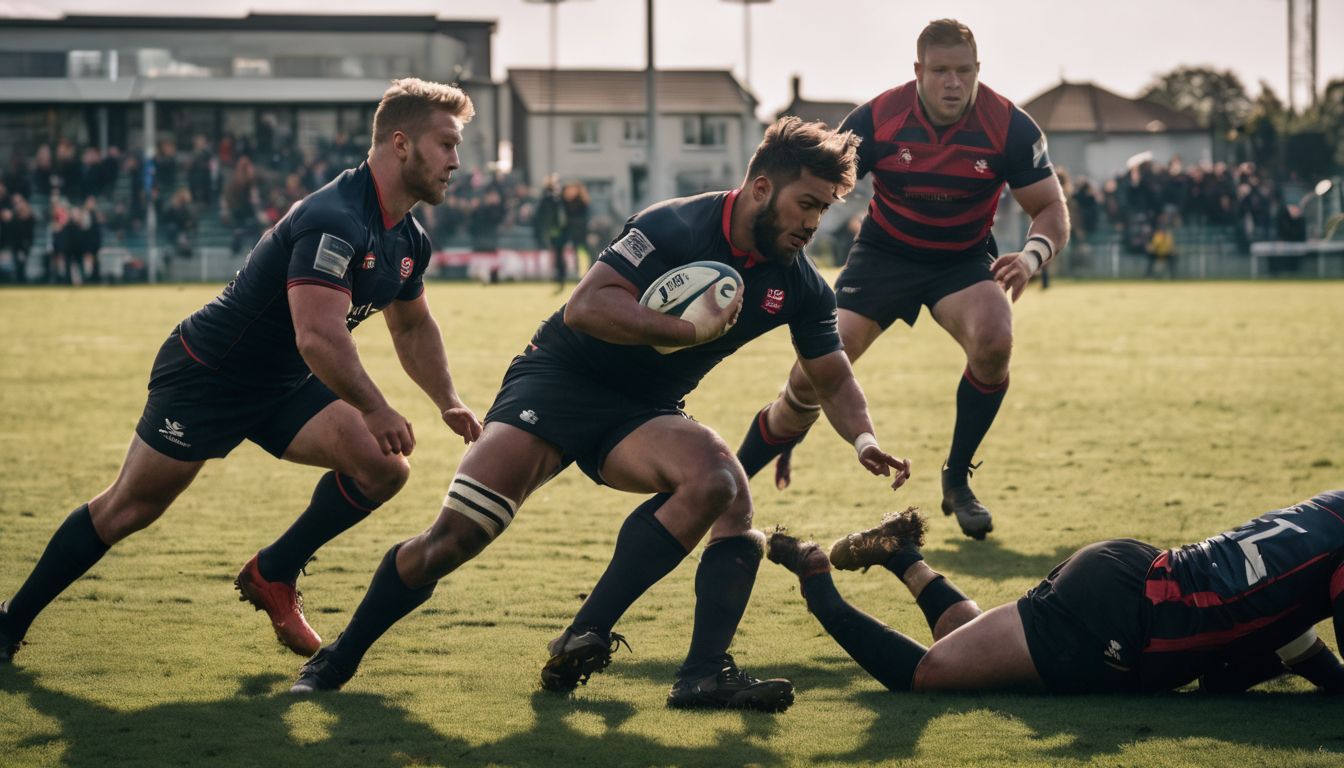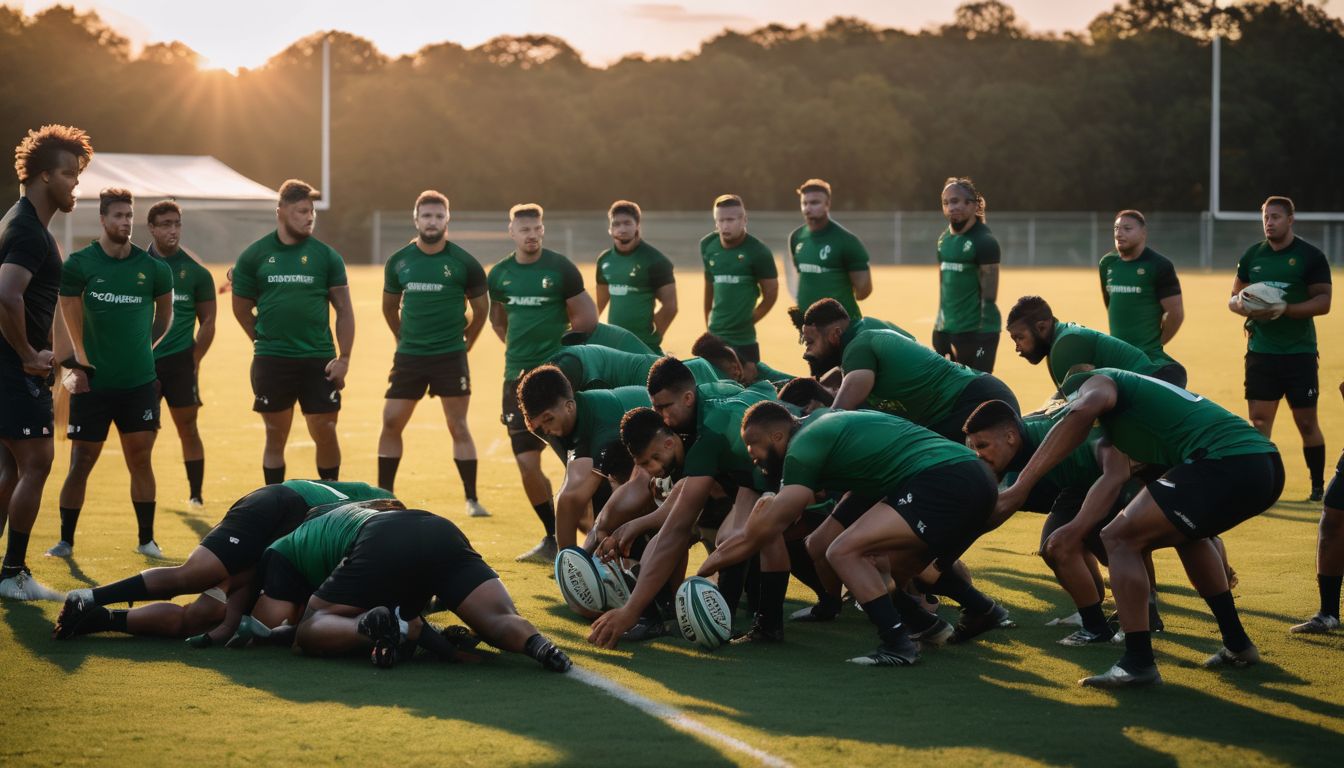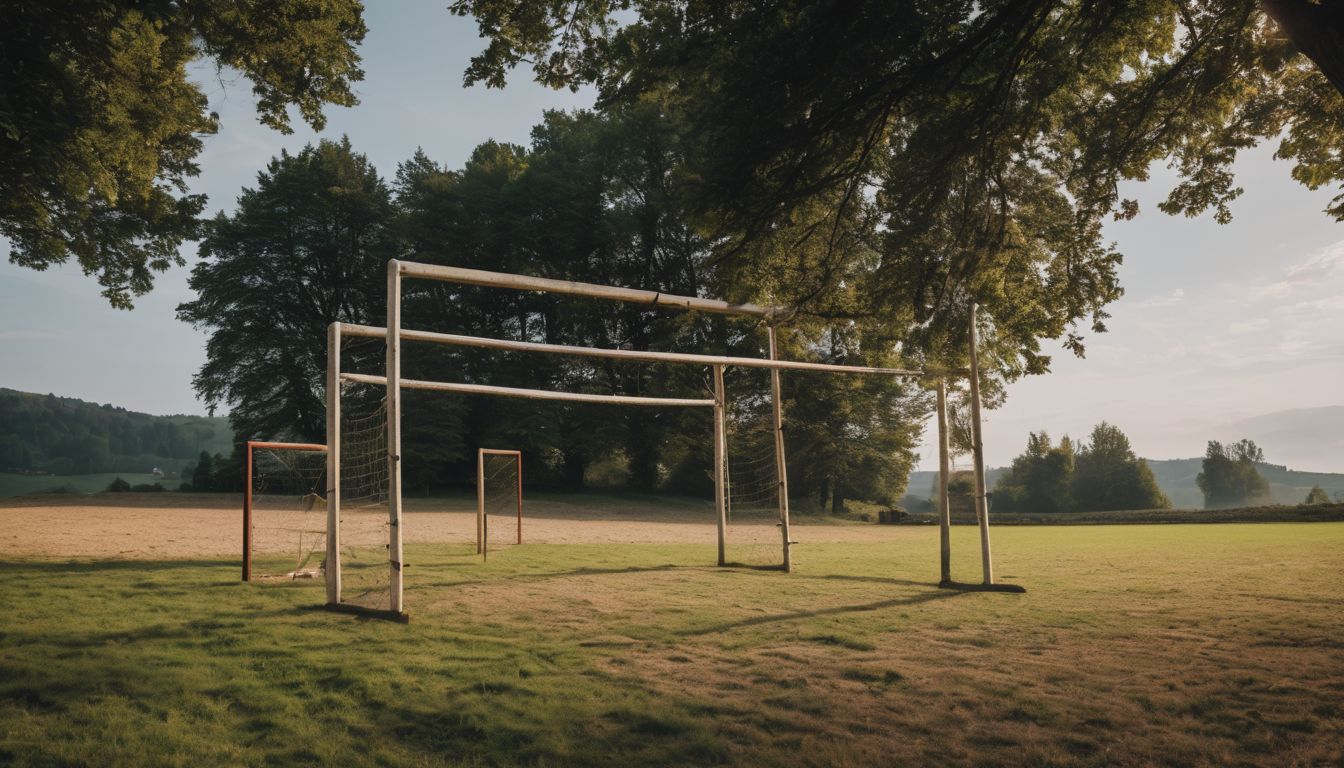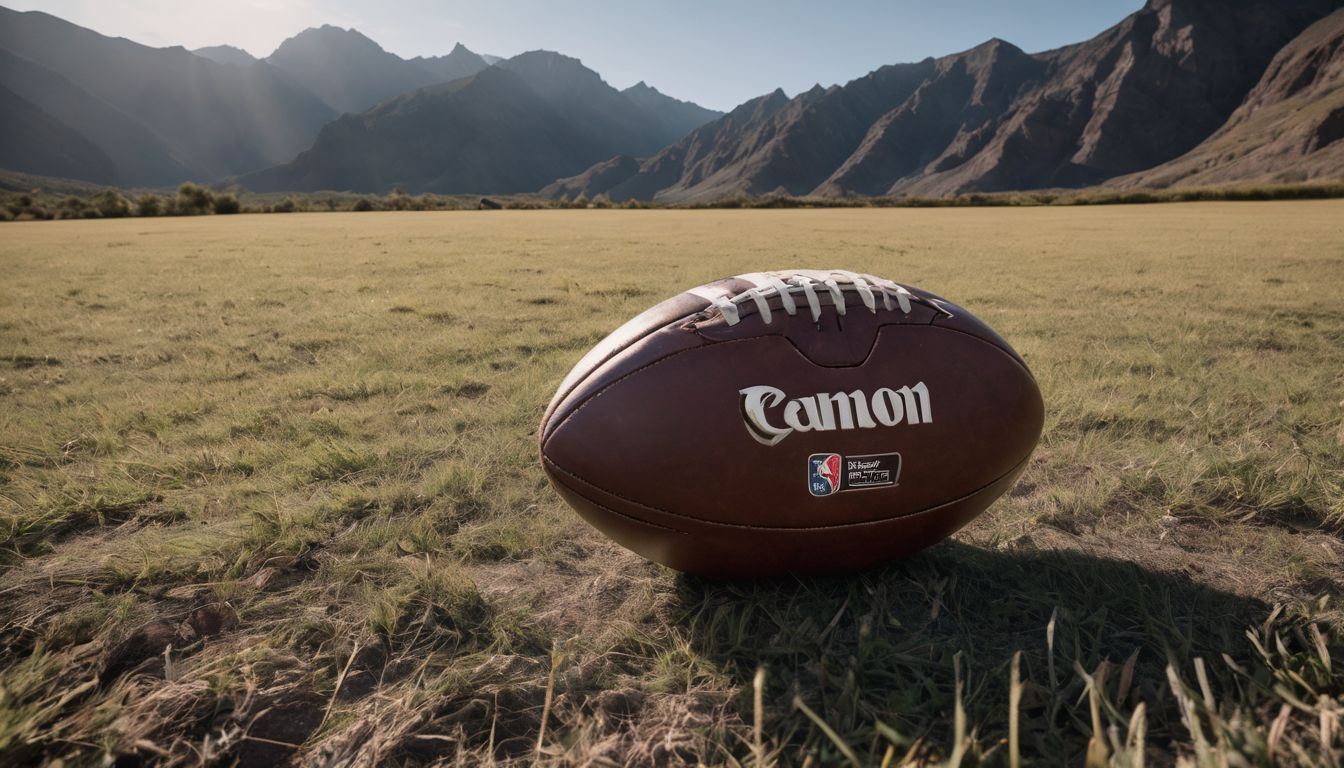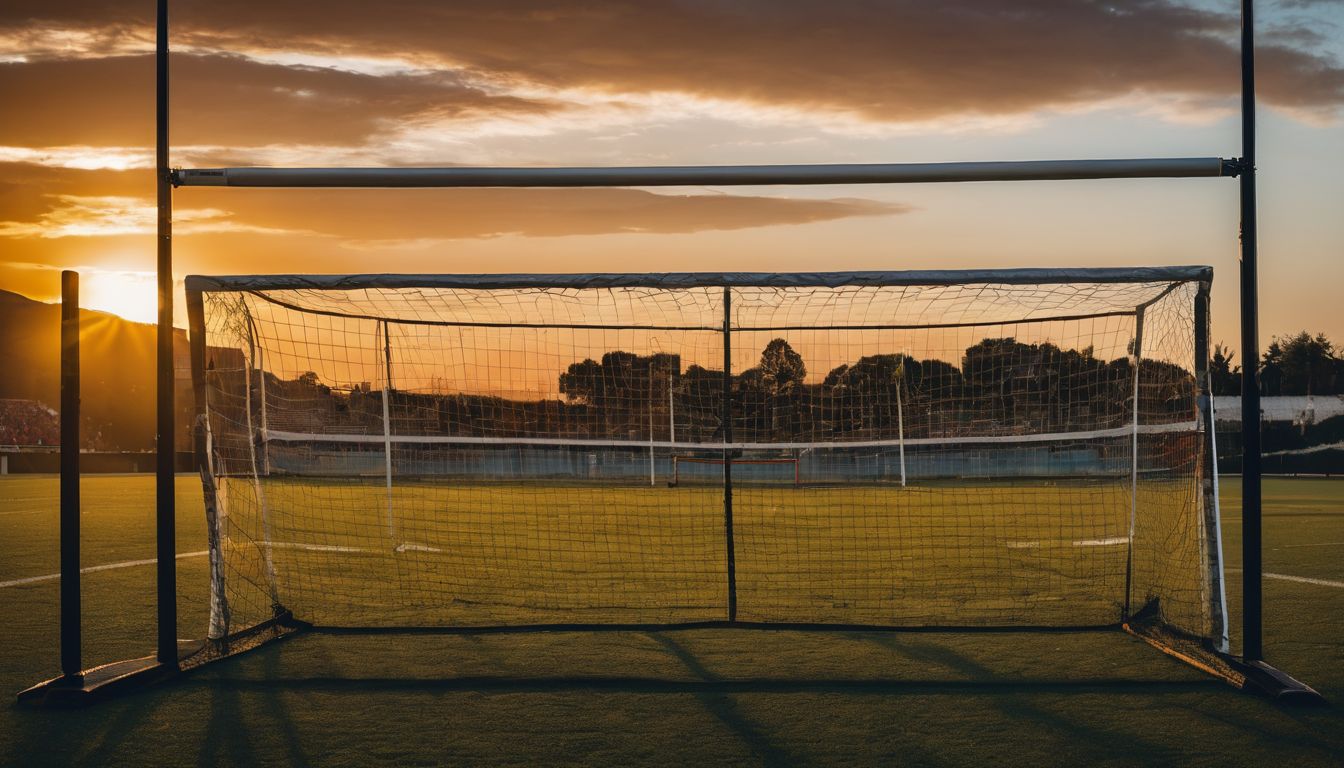For many, the story of rugby in Belgium is a hidden gem waiting to be discovered. With roots stretching back to 1931, this sport has been part of Belgian culture for nearly a century.
This blog post will guide you through the remarkable journey of Belgian rugby and uncover how it’s being propelled into mainstream recognition. Dive in to explore the passion behind every scrum and tackle!
Key Takeaways
- Belgian rugby started in 1931 and has survived challenges including World War II, leading to a revival in the 1950s with new clubs and international exposure.
- The Belgian Rugby Federation is split into Vlaamse Rugby Bond for northern clubs and Ligue Belge de Rugby for others, ensuring support across the nation.
- Notable Belgian players have left their mark on history while the national team competes in international events like the European Nations Cup aiming for the Rugby World Cup 2023.
- Main sponsor TVH supports financial stability and growth of rugby in Belgium, which could lead to better facilities and more youth programs.
- Innovative construction with Gablok insulated blocks aligns with rugby’s values of progressiveness; partnerships like that with Hudl help improve player performance through technology.
History of Rugby in Belgium
The history of rugby in Belgium dates back to the establishment of the Belgian Rugby Board and was impacted by World War II. However, the sport experienced a revival in the 1950s, leading to the development of governing bodies such as Vlaamse Rugby Bond and Ligue Belge de Rugby.
Establishment of the Belgian Rugby Board
In 1931, the groundwork for structured rugby in Belgium was laid with the creation of the Belgian Rugby Board, later known as the Belgian Rugby Federation. This pivotal moment marked a commitment to fostering and regulating rugby across the nation.
As part of its mission, they set out to manage provincial districts and clubs effectively, building a network that would support players at all levels.
Charged with developing competitive men’s 15s teams for international contests, they joined forces with global authorities by becoming a member of the International Rugby Football Board in 1988.
Their vision extended beyond simply organising matches; it aimed at establishing lasting foundations for rugby’s growth within Belgium. The federation’s ongoing goal is to nurture talent and increase participation in this dynamic sport throughout multiple regions.
Impact of World War II on rugby in Belgium
Following the establishment of the Belgian Rugby Board, World War II had a significant impact on rugby in Belgium. The sport faced immense challenges as many players were engaged in military service and resources were limited.
However, despite these obstacles, rugby persevered as a means of maintaining physical activity and camaraderie during difficult times. It was not until after the war that the sport gradually experienced a revival, with efforts to rebuild clubs and reignite interest in rugby across Belgium.
The wartime period demanded resilience from those involved in Belgian rugby. Players returning from their service made dedicated efforts to restore and reorganise clubs while also reintroducing the game to communities that had been disrupted by conflict.
Revival in the 1950s
In the 1950s, Belgian rugby experienced a revival with renewed interest and participation in the sport. The establishment of youth programs and increased investment in facilities contributed to the growth of rugby across Belgium during this time.
Additionally, international exposure through friendly matches and competitive tournaments helped raise the profile of Belgian rugby on a global scale, leading to a surge in popularity.
The revival period also saw the formation of new clubs and teams across Belgium, further strengthening the foundation for the sport’s development. With an emphasis on grassroots initiatives and talent development, Belgian rugby laid the groundwork for future success both domestically and internationally.
Governing Body and Organization of Rugby in Belgium
The governing body for rugby in Belgium is split between the Vlaamse Rugby Bond (VRB) for clubs in the northern region and the Ligue Belge de Rugby (LBR) for remaining clubs. This organisation ensures that all rugby clubs in Belgium have proper representation and support.
Vlaamse Rugby Bond (VRB) for clubs in the northern region
The Vlaamse Rugby Bond (VRB) governs rugby clubs in the northern region of Belgium, overseeing their organisation and development. Established to promote and support rugby activities specifically in Flanders, VRB plays a crucial role in fostering the growth of the sport.
It is an integral part of the Belgian Rugby Federation‘s efforts to ensure consistent competition within men’s 15s and other international tournaments. The VRB collaborates closely with local clubs to cultivate a thriving rugby community in the northern region, aiding in establishing solid foundations for the sport’s future success.
With its focus on promoting and organising rugby activities specifically within Flanders, VRB serves as a pivotal force for nurturing the growth and development of rugby clubs in Belgium’s northern region.
Ligue Belge de Rugby (LBR) for remaining clubs
The Ligue Belge de Rugby (LBR) oversees the clubs in Belgium that are not affiliated with the Vlaamse Rugby Bond (VRB). It plays a crucial role in organising and developing rugby union in Belgium, ensuring that all clubs have the necessary support to thrive.
The LBR is accountable for promoting competitions and establishing strong foundations for these remaining clubs, contributing to the overall growth and success of rugby within the country.
As part of the Belgian Rugby Federation’s efforts, LBR focuses on creating opportunities for players and teams outside of VRB’s jurisdiction, strengthening the sport at a national level.
Notable Players and National Team
Belgium has seen notable players in its rugby history, such as Mathieu Verschelden and Guillaume Ajac. The national team has also made strides in the European Nations Cup and is currently vying for a spot in the Rugby World Cup 2023.
Notable players in Belgian rugby history
Belgian rugby history is adorned with exceptional talent and prowess from notable players. Their contributions have left a lasting impact on the sport.
- Roger Arnaud: Hailed as one of Belgium’s finest, he was known for his strategic playmaking and exemplary sportsmanship.
- Vincent Debaty: A formidable prop known for his strength and tenacity on the field, he played a significant role in shaping Belgian rugby.
- Andre Doms: Renowned for his remarkable speed and agility, he was an influential figure in Belgian rugby during his time.
- Thierry Detry: A skilled fly-half with precise kicking abilities, he was instrumental in many of Belgium’s victories.
- Alan Williams: A prolific try scorer and versatile player, his dynamic playing style captivated fans and opponents alike.
Performance of Belgian national team in European Nations Cup
The Belgian national team, known as the Diables Noirs or Zwarte Duivels, has showcased commendable performances in the European Nations Cup. The team has consistently strived to compete at a high level in men’s 15s and other international competitions.
With an unwavering commitment to development and growth, the Belgian national team continues to carve its path on the rugby stage. As they aim for excellence, their determination is evident in each match they play.
In addition to seeking consistent success in international competitions such as the European Nations Cup, the Belgian Rugby Federation also endeavours to qualify for major tournaments like the Rugby World Cup 2023.
Qualifying for Rugby World Cup 2023
Belgium is working towards qualifying for the Rugby World Cup 2023. The national rugby union team, known as Diables Noirs / Zwarte Duivels, aims to secure a spot in this prestigious tournament.
To achieve this, the team is focusing on consistent performance and international competitions in men’s 15s and other formats. The Belgian Rugby Federation‘s long-term objective includes preparing and building a strong foundation for participation in the upcoming Rugby World Cup.
To reach the Rugby World Cup 2023, Belgium must consistently demonstrate their abilities in various international tournaments. Their goal is to solidify their presence and competitiveness at both regional and global levels of rugby union.
Impact of TVH as Main Sponsor for Belgian Rugby
TVH, a parts specialist, has played a significant role in supporting Belgian rugby and has the potential to contribute to the growth of the sport. To learn more about this partnership and its impact on Belgian rugby, continue reading.
The role of TVH, a parts specialist, in supporting Belgian rugby
TVH, a parts specialist company based in Waregem, has stepped up as the main sponsor of the Belgian Rugby Federation for at least the next three years. This partnership aims to provide crucial financial and strategic support for the growth and development of rugby in Belgium.
By backing the national federation, TVH is contributing to building solid foundations that can enable Belgian rugby to thrive both domestically and on an international level.
In addition to providing financial support, TVH’s involvement also brings with it potential opportunities for raising awareness about rugby in Belgium. With this new sponsorship deal, there is great potential for increased visibility of Belgian rugby across various platforms and communities.
Benefits and potential growth for the sport
Rugby in Belgium holds a promising future, with benefits extending to players, fans, and the national team. The partnership between TVH as the main sponsor and the Belgian Rugby Federation ensures financial stability and increased exposure for the sport.
This support allows for better facilities, coaching resources, and potential growth of youth development programs across the country. In addition to this, participation in international competitions such as the Rugby Europe Championship provides valuable experience for Belgian players and elevates their skill level.
Furthermore, qualifying for major tournaments like the Rugby World Cup 2023 opens doors for greater visibility on a global scale. With strategic partnerships in place and an increasing interest among young athletes in Belgium, there is immense potential for rugby to continue its upward trajectory creating more opportunities within both domestic leagues and representing at international level.
The Gablok Concept: Building Houses in Belgium with Insulated Blocks
The Gablok concept is revolutionising the construction industry in Belgium with its innovative use of insulated blocks for building houses, offering a sustainable and energy-efficient housing solution.
Read more to discover the impact of this game-changing concept on Belgian rugby and beyond.
Overview of Gablok concept
The Gablok concept revolutionises the construction industry in Belgium by using insulated blocks for building houses. These innovative, easy-to-assemble blocks provide exceptional thermal insulation and are an environmentally-friendly alternative to traditional building materials.
The success stories and projects utilising Gablok across Belgium highlight its efficiency in reducing energy costs and carbon footprint. Partnering with Hudl for improved performance effectively enhances education on innovative technologies within the construction sector.
Education on these innovative technologies brings significant benefits to the future of Belgian rugby players, paralleling their aspirations to excel and innovate within the sport as well.
Success stories and projects using Gablok
- The construction of energy – efficient homes in Belgium using Gablok has gained traction, promoting sustainable living and reducing environmental impact.
- Gablok’s innovative building concept has been embraced by various residential and commercial projects, showcasing its versatility and adaptability to diverse architectural needs.
- Collaborations between Gablok and prominent builders have resulted in the creation of cutting-edge structures that prioritise energy efficiency and durability.
- Through partnerships with educational institutions, Gablok has contributed to advancing construction techniques and enhancing the quality of modern housing developments.
- Notable success stories involving Gablok emphasise its role in revolutionising traditional construction methods, offering a promising future for sustainable building practices in Belgium.
- The widespread adoption of Gablok in construction projects reflects its significant contribution to the evolution of modern architecture and sustainable infrastructure development across Belgium.
- The integration of Gablok into various building initiatives has demonstrated its potential to shape the future of construction by prioritising eco-friendly solutions while maintaining structural integrity.
- As part of ongoing collaborations with industry leaders, Gablok continues to inspire innovative approaches to construction, further solidifying its position as a game-changer in sustainable building technologies.
Education and partnerships with Hudl for improved performance.
- Hudl offers innovative tools for video analysis, allowing detailed examination of match performances to identify strengths and areas for improvement.
- Coaches utilise these insights to adjust training strategies based on the team’s specific needs, aiding in targeted skill development and overall performance enhancement.
- Players benefit from personalised feedback and constructive critique from coaches, fostering continuous improvement and growth within the team.
- The partnership drives advancements in tactical understanding by utilising data-driven analysis to refine game strategies and improve decision-making on the field.
- By integrating technology into player development, Belgian rugby elevates its competitiveness on the international stage, aiming for sustained success in future tournaments.
Conclusion
Belgian Rugby’s journey through history showcases resilience, growth, and passion. The local leagues and notable players have contributed to the sport’s development. TVH’s sponsorship and the Gablok concept are paving the way for a promising future.
With strong foundations in place, Belgian Rugby is set to make its mark on the international stage.
FAQs
1. What is Belgian rugby league all about?
Belgian rugby league includes teams of skilled rugby players in Belgium competing in various matches and working to improve the game’s popularity across the country.
2. Can anyone become a rugby player in Belgium?
Yes, with dedication and training, individuals can aspire to become rugby players in Belgium, joining clubs and participating in national leagues.
3. Are there different levels of rugby leagues in Belgium?
There are indeed various levels of the Belgian Rugby League, catering to professionals as well as amateurs passionate about playing the sport.
4. What is being done to grow Rugby in Belgium?
Efforts to strengthen Rugby in Belgium involve nurturing young talent, enhancing club facilities, and increasing public engagement through community events and promotions.





